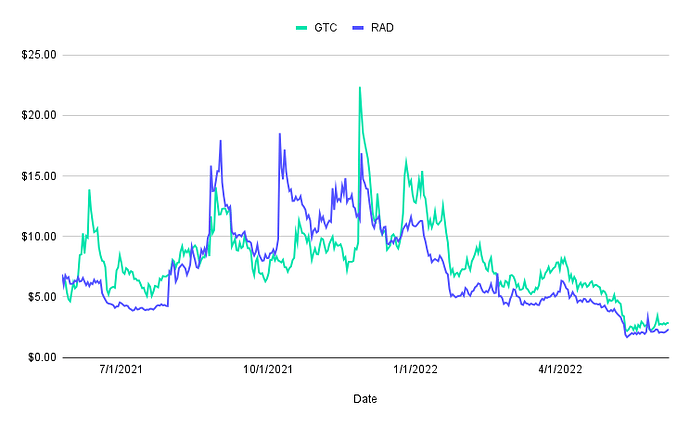Hey @epowell101
-
We see the governance committees from each community as responsible for initiating and driving these types of conversations around integrations and partnerships. Right now, there’s not an ongoing formal conversation happening between the two communities about how products can be integrated. Rather than thinking about the alliance as a cost-cutting measure, it probably makes sense to think of it more in terms of driving growth for both communities’ products. For example, how might a tighter integration with Radicle’s product line help drive growth in Grants?
-
There is some metagovernance power and value to the mutual grant given Gitcoin’s ability to vote in Radicle proposals. We aren’t working on any specific strategy to improve GTC utility, but there is a lot of active discussion on the forum about how to improve GTC to add more utility. I’d point you to this thread in particular.
-
You’re correct, there’s not much of a treasury diversification benefit. Since GTC launched in the summer of '21, the two tokens have a correlation of 0.73. Data here.
-
That’s right; committee members will need to be compensated, though we’d expect those expenses to be relatively small. We wanted to get a general sentiment check on the proposal before diving into the specifics, but we can be sure to include details around that in our follow up post. Other than governance committee expenses, there should not be any other financial impact.
